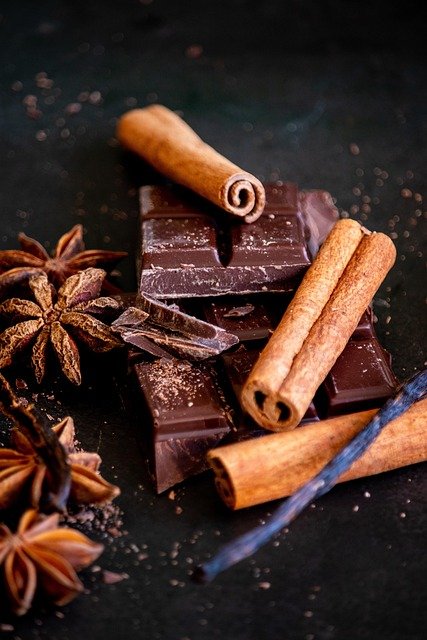This post may contain affiliate links, meaning that I may receive compensation if you make a purchase through these links. As an Amazon Associate, I earn from qualifying purchases. This compensation does not influence the content, or recommendations provided. The opinions expressed are my own, and I strive to provide honest and unbiased information.
Cancer Prevention – Food Heroes: The Power of Phytonutrients
The saying “you are what you eat” rings especially true when it comes to cancer prevention. While genetics and lifestyle play roles, mounting scientific evidence highlights the importance of diet. Certain foods, often rich in phytonutrients, antioxidants, and fiber, have shown incredible promise in helping the body defend against cancer. These “food heroes” don’t just nourish—they actively protect.
Understanding Cancer Prevention and Nutrition
What Are Phytonutrients?
Phytonutrients, also called phytochemicals, are natural compounds found in plants that protect them from pests, UV rays, and disease. In humans, they work as tiny health warriors—reducing inflammation, boosting immunity, and neutralizing harmful processes that can lead to cancer.
How Diet Influences Cancer Risk
Studies from organizations like the American Institute for Cancer Research (AICR) confirm that nearly 30–40% of cancers could be prevented through healthy eating and lifestyle choices. A diet rich in fruits, vegetables, whole grains, and legumes provides the body with nutrients to repair DNA, regulate hormones, and detoxify harmful compounds.
The Role of Antioxidants in Cancer Prevention
Fighting Free Radicals Naturally
Free radicals—unstable molecules produced by stress, pollution, or poor diet—can damage cells and DNA. Antioxidants from food act like a shield, neutralizing free radicals before they cause long-term harm.
Top Antioxidant-Rich Foods to Include
Berries: High in anthocyanins and vitamin C.
Tomatoes: Rich in lycopene, linked to prostate and lung cancer protection.
Green Tea: Loaded with catechins, powerful cancer-fighting compounds.
Dark Chocolate (in moderation): Contains flavonoids that combat oxidative stress.
The Importance of Dietary Fiber in Reducing Cancer Risk
How Fiber Supports Gut Health
Fiber doesn’t just aid digestion—it lowers cancer risk by promoting a healthy gut microbiome, regulating blood sugar, and speeding the removal of toxins. Soluble fiber feeds beneficial bacteria, while insoluble fiber keeps the digestive system running smoothly.
High-Fiber Foods for Everyday Eating

Whole grains (brown rice, oats, quinoa)
Legumes (lentils, chickpeas, beans)
Vegetables (carrots, Brussels sprouts, leafy greens)
Fruits (apples, pears, berries)
Cancer Prevention Foods: Cruciferous Vegetables
Cruciferous Vegetables: Broccoli, Cauliflower, and Kale
These vegetables are rich in sulforaphane, a compound shown to inhibit cancer cell growth. Regular intake is linked to lower risks of breast, prostate, and colon cancer.
Berries: Blueberries, Strawberries, and Raspberries
Packed with antioxidants and ellagic acid, berries help deactivate carcinogens and reduce inflammation.
Tomatoes and Lycopene Power
Cooked tomatoes release lycopene, a potent carotenoid associated with a reduced risk of prostate and gastric cancers.
Green Tea: Nature’s Anticancer Elixir
Catechins in green tea slow tumor growth and reduce cell damage. Drinking 2–3 cups daily can be a powerful preventive step.
Garlic and Onions: Sulfur Compounds with Strength
Allicin and organosulfur compounds in these pungent foods stimulate immune defenses and reduce cancer risk.
Turmeric and Curcumin’s Anti-Inflammatory Benefits
Curcumin has been shown to inhibit tumor growth and reduce inflammation, making turmeric a golden spice for prevention.
Leafy Greens: Spinach and Swiss Chard
These greens are abundant in folate, lutein, and beta-carotene—nutrients that support DNA repair and cell protection.
Citrus Fruits: Vitamin C and Phytochemicals
Citrus fruits boost immune defense and inhibit the formation of cancer-causing nitrosamines.
Additional Foods with Cancer-Preventive Properties

Whole Grains and Seeds
Quinoa, brown rice, flaxseeds, and chia seeds are fiber-rich and full of protective lignans.
Nuts: Walnuts, Almonds, and Brazil Nuts
Selenium in Brazil nuts and omega-3s in walnuts contribute to cancer prevention.
Legumes and Lentils
A steady intake of legumes lowers colorectal cancer risk due to fiber, folate, and plant proteins.
Cancer Prevention Foods: Building a Cancer-Preventive Diet
Practical Tips for Daily Nutrition
Fill half your plate with colorful vegetables and fruits.
Replace refined grains with whole grains.
Swap sugary snacks for nuts and berries.
Flavor meals with herbs and spices instead of salt.
Balancing Variety and Moderation
No single food can prevent cancer. A variety of nutrient-dense foods ensures your body gets the full spectrum of protective compounds.
Frequently Asked Questions (FAQs)
Q1: Can food alone prevent cancer?
Not entirely. Food can lower risk, but lifestyle factors like exercise, stress management, and avoiding smoking also matter.
Q2: How often should I eat cruciferous vegetables?
At least 3–4 servings per week is recommended for maximum benefit.
Q3: Is green tea better than coffee for cancer prevention?
Green tea contains catechins that specifically target cancer pathways, making it a better choice.
Q4: Are supplements a good substitute for phytonutrient-rich foods?
Whole foods are far superior because they provide synergistic nutrients supplements can’t match.
Q5: Does cooking vegetables reduce their cancer-fighting power?
Some nutrients decrease, but others—like lycopene in tomatoes—become more bioavailable after cooking.
Q6: What’s the best snack for a cancer-preventive diet?
A handful of mixed nuts and fresh berries is nutrient-packed and satisfying.
Conclusion: Nourishing Your Body for Cancer Prevention
Cancer prevention isn’t about quick fixes—it’s about consistent, nourishing choices. Foods rich in phytonutrients, antioxidants, and fiber act as daily defenders, supporting the body’s ability to resist and repair cellular damage. By filling your plate with food heroes like broccoli, berries, green tea, and legumes, you’re not just eating—you’re building resilience against cancer.
Reference: American Institute for Cancer Research
To learn more about Green Tea benefits read: Green Tea: Nature’s Healing Elixir


